PENGUIN  CLASSICS
CLASSICS
THE PORTABLE MALCOLM X READER
MALCOLM X was born in Omaha, Nebraska, in 1925 and raised in Lansing, Michigan, where his father was killed in 1931. Malcolm Little moved to Boston to live with his half sister Ella after living briefly with a foster family following his mothers institutionalization in 1939.
Influenced by his siblings as well as personal writings from Elijah Muhammad, Malcolm converted to the Nation of Islam (NOI) in 1948 and assumed the last name X to represent his lost original name. Malcolm quickly became a leading figure within the Nation of Islam and a dynamic media figure, uncompromisingly preaching the Nations rhetoric of racial separatism and self-determination. However, unresolved tensions within the NOI led to Malcolms break on March 8, 1964, and the forming of a new orthodox Muslim group, Muslim Mosque, Inc. (MMI). That June he also helped establish the secular Organization of Afro-American Unity (OAAU). Malcolm then traveled again, as he had in 1959, to Africa and the Middle East as a spiritual sojourn and in order to make political alliances. Through the OAAU and alongside other civil rights groups that he had formerly repudiated, Malcolm hoped to transform the issue of civil rights into one of human rights and bring it before the United Nations in a show of Pan-African unity. He was assassinated in the early afternoon of Sunday, February 21, 1965, as he addressed an OAAU rally at the Audubon Ballroom. He left behind his wife, Betty Shabazz, and six daughters. The Autobiography of Malcolm X, coauthored with Alex Haley and published posthumously in November of that year, became an international best seller and remains a celebrated classic of twentieth-century American literature.
MANNING MARABLE (19502011) was M. Moran Weston and Black Alumni Council Professor of African American Studies and professor of history and public affairs at Columbia University. He was founding director of African American Studies at Columbia from 1993 to 2003 and directed Columbias Center for Contemporary Black History. The author of fifteen books, Marable was also editor of the quarterly journal Souls.
GARRETT FELBER was the key researcher for Dr. Marables Malcolm X biography, Malcolm X: A Life of Reinvention, and is currently a doctoral student at the University of Michigan, Ann Arbor.
The Portable
Malcolm X Reader
Edited by
MANNING MARABLE and
GARRETT FELBER
Preface by
GARRETT FELBER
Introduction by
MANNING MARABLE
PENGUIN BOOKS
PENGUIN BOOKS
Published by the Penguin Group
Penguin Group (USA) Inc., 375 Hudson Street,
New York, New York 10014, U.S.A.
Penguin Group (Canada), 90 Eglinton Avenue East, Suite 700, Toronto,
Ontario, Canada M4P 2Y3 (a division of Pearson Penguin Canada Inc.)
Penguin Books Ltd, 80 Strand, London WC2R 0RL, England
Penguin Ireland, 25 St Stephens Green, Dublin 2, Ireland
(a division of Penguin Books Ltd)
Penguin Group (Australia), 707 Collins Street, Melbourne, Victoria 3008,
Australia (a division of Pearson Australia Group Pty Ltd)
Penguin Books India Pvt Ltd, 11 Community Centre, Panchsheel Park,
New Delhi - 110 017, India
Penguin Group (NZ), 67 Apollo Drive, Rosedale, Auckland 0632,
New Zealand (a division of Pearson New Zealand Ltd)
Penguin Books (South Africa), Rosebank Office Park, 181 Jan Smuts
Avenue, Parktown North 2193, South Africa
Penguin China, B7 Jiaming Center, 27 East Third Ring Road North,
Chaoyang District, Beijing 100020, China
Penguin Books Ltd, Registered Offices:
80 Strand, London WC2R 0RL, England
First published in Penguin Books 2013
Copyright Leith Mullings, Executor of the Estate of Manning Marable, 2013
Preface copyright Garrett Felber, 2013
All rights reserved
Pages constitute an extension of this copyright page.
ISBN: 978-1-101-60294-2
CIP data available
Designed by Sabrina Bowers
Except in the United States of America, this book is sold subject to the condition that it shall not, by way of trade or otherwise, be lent, resold, hired out, or otherwise circulated without the publishers prior consent in any form of binding or cover other than that in which it is published and without a similar condition including this condition being imposed on the subsequent purchaser.
The scanning, uploading, and distribution of this book via the Internet or via any other means without the permission of the publisher is illegal and punishable by law. Please purchase only authorized electronic editions, and do not participate in or encourage electronic piracy of copyrighted materials. Your support of the authors rights is appreciated.

Preface
In 2006 Manning Marable outlined his concept of living black history, the reconstruction of African Americans hidden, fragmented past into something usable in the present context of color-blind racism, mass unemployment, incarceration, and disfranchisement. Preserving the past, he wrote, creates a living legacy that can help shape the future. Gathered in this reader in the form of oral histories, newspaper stories, speeches, legal documents, government surveillance, and scholarly articlesis a remarkable record of the life and legacy of Malcolm X. It is, however, merely the raw material with which scholars, activists, and the young will have to critically engage if they hope to make use of it in the ever-changing present.
At a time when students understanding of the history of civil rights struggle in America appears to be on the decline, it becomes even more imperative to bring forth a fresh and nuanced body of literature on Malcolm X.Lindh, black youths in Harlem donning X baseball caps and T-shirts, the Iranian government of Ayatollah Ruhollah Mussaui Khomeini, and the United States Postal Service. He was even deployed by al-Qaeda during the 2008 election to denounce presidential candidate Barack Obama as a house Negro. Malcolm Xs trenchant critiques of police brutality, American racism, and neocolonialism, as well as his positive message of black unity and cultural pride, remain as relevant, and in many cases radical, as they were during his day. However, as many of these examples demonstrate, his legacy is not only continually relevant but also susceptible to distortions and appropriations. This collection does not suggest a single meaning to Malcolms legacy but rather offers an imperative to continually grapple with his meaning to our past and present.
The first section of the reader, Documents, historicizes primary materials relating to thirty-five key events in Malcolm Xs life. This section grew out of the chronology constructed for Professor Marables biography, Malcolm X: A Life of Reinvention (2011), as well as materials used in his yearly seminar on Malcolm X. Many of these documents provide greater depth to the early life of Malcolm Little portrayed in The Autobiography of Malcolm X (1965)the transcript of the Michigan State Police interview with his father, Earl Little, for example, following the arson of his home in Lansing, Michigan, and a mental health file that documents the financial strain the family felt following the institutionalization of Malcolms mother, Louise Little. Letters and newspaper articles from Malcolms years in prison (194652) demonstrate his growing politicization as he fought for Muslim prisoners religious rights within the Massachusetts correctional system. While some documents offer fuller insights into the events in his autobiography, others fill in missing historical gaps. Documents relating to Malcolms establishment of the Philadelphia temple in the mid-1950s and his popular lecture series in Detroit offer a window into his influence as an orator and organizer within the Nation of Islam (NOI). Sections on the writing of the


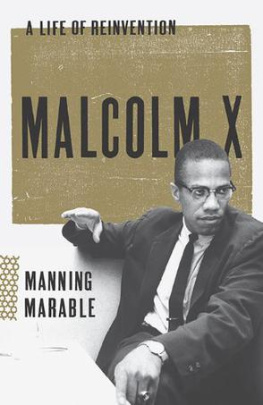
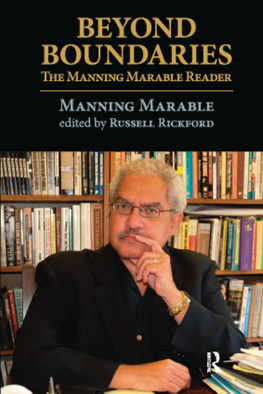
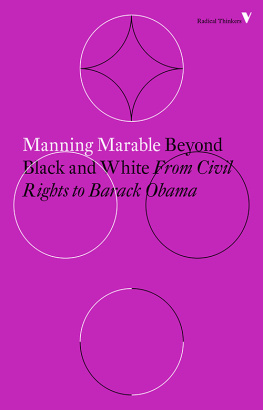
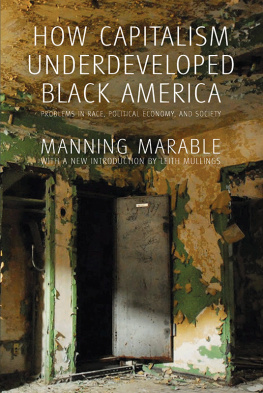


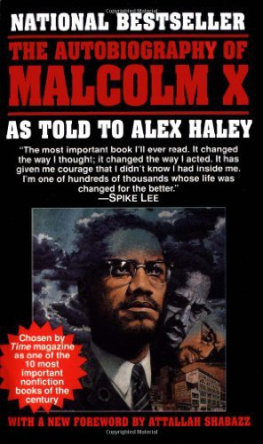
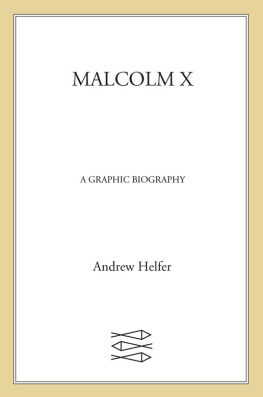
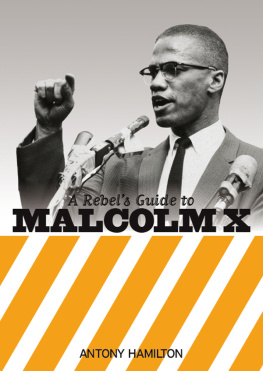
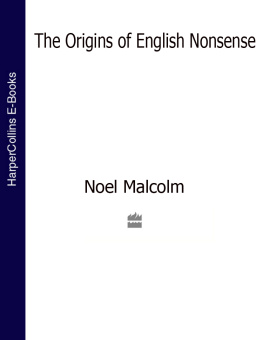
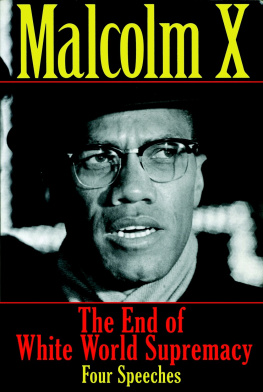
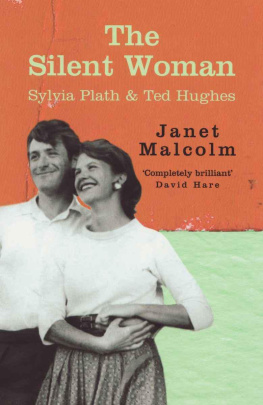

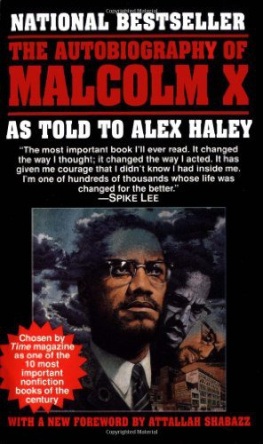

 CLASSICS
CLASSICS